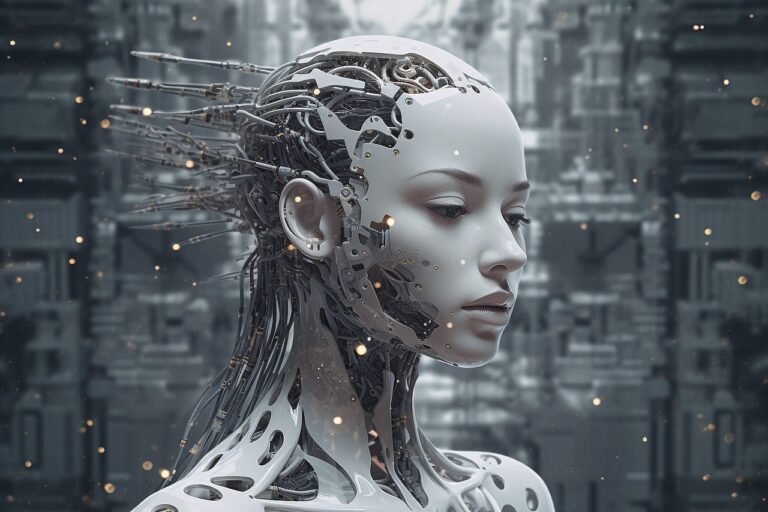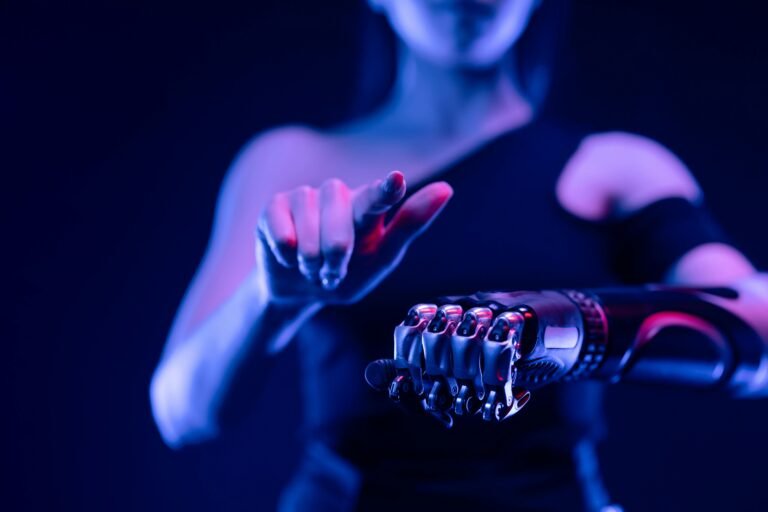
Do People See AI-Generated Music as Less Authentic Than Human-
Made Content?
Introduction: The Perception Gap in Musical Authenticity
The proliferation of artificial intelligence in music creation has sparked intense debate about authenticity, with mounting evidence suggesting that listeners perceive AI-generated music as fundamentally less authentic than human-composed works. This perception gap extends beyond simple preference to touch deeper questions about emotional resonance, creative legitimacy, and the very nature of musical expression. Recent research reveals a complex landscape where technical sophistication meets psychological bias, creating what scholars call “AI composer bias” the tendency for listeners to devalue music simply because they believe it was created by artificial intelligence.
The authenticity question has become particularly urgent as AI-generated music achieves increasingly sophisticated technical quality while platforms like Spotify, Deezer, and others grapple with how to label and integrate AI content into their catalogs. With nearly one in five new uploads on Deezer now being fully AI-generated, understanding listener perceptions has become crucial for artists, platforms, and policymakers navigating this new creative landscape.
The Research Foundation: Evidence for Authenticity Bias
Controlled Studies Reveal Label Effects
Multiple controlled studies have documented significant bias against AI-generated music when listeners are aware of its artificial origin. A landmark study published in the Journal of Experimental Psychology: Applied found that “participants were more likely to attribute an AI composer to electronic music and liked music less that they thought was composed by an AI”. Crucially, when the same musical excerpts were presented with manipulated labels, “participants liked the music less when it was purportedly composed by an AI”.
The most revealing evidence comes from recent SSRN research involving 777 participants who rated identical musical excerpts under different attribution conditions. The study found that “responses to the AI condition reported the music to be less expressive and to evoke less of an emotional response” compared to the human-attributed condition, despite the musical content being identical. This demonstrates that authenticity perceptions are significantly influenced by attribution rather than purely sonic qualities.
A comprehensive MIT study examining listener perceptions across multiple labeling conditions found that “participants were significantly more likely to rate human-composed music, regardless of labeling, as more effective at eliciting target emotional states”. However, the same study revealed a paradox: “participants were significantly more likely to indicate preference for AI-generated music” in blind tests, suggesting that authenticity concerns operate independently of actual enjoyment
.
Cross-Cultural and Genre-Specific Patterns
Research into Irish Traditional Music (ITM) practitioners revealed particularly strong authenticity bias, with participants showing “a negative association between liking a tune and believing that it is AI-composed”. The study noted that ITM represents “a context in which authenticity is so heavily human-centered that practitioners will show a bias against liking music they believe is authored by AI”. This cultural specificity suggests that authenticity perceptions vary significantly across musical traditions and communities.
Genre-based studies reveal interesting patterns in authenticity attribution. The Journal of Experimental Psychology research found that “participants were more likely to attribute an AI composer to electronic music” compared to classical music. This suggests that certain musical styles are perceived as more compatible with artificial creation, potentially reflecting existing associations between electronic music and technological production methods.
The Psychology of Musical Authenticity
Emotional Depth and Human Connection
Qualitative research consistently reveals that listeners associate musical authenticity with specifically human qualities. MIT’s study found that participants associated “humanness with qualities such as imperfection, flow, and ‘soul'”. These perceptions align with broader psychological research showing that “people rate music composed by artificial intelligence as less authentic than human-composed music because AIs lack the emotions necessary for authentic expression”.
The concept of “soul” in music appears central to authenticity perceptions. One study specifically examining this phenomenon found that “the ‘soul’ inside music refers to the emotional expression that the musician evokes in the song and the emotional interpretations by the listener”. This research suggested that authenticity requires “the connection that develops between listeners and musicians through music” a relationship perceived as fundamentally compromised when the creator is artificial.
Neuroscientific research supports these perceptions, with studies showing that “music-making AIs, and the music they compose, are thought to lack this emotional quality” because “computer programs lack the proper embodied, interoceptive states and homeostatic physiological drive, by which emotions are proposed to be constituted”. This suggests that authenticity perceptions may reflect genuine differences in the emotional generation process.
The Attribution Paradox
Recent research has uncovered a fascinating paradox in AI music perception. While listeners consistently rate AI-attributed music as less authentic and emotionally resonant, controlled studies reveal minimal actual differences in physiological or emotional response. A 2025 study examining emotional impact found that “participants found AI-generated music more arousing than HCM [human-composed music], while HCM was perceived as more familiar than both AI conditions”.
This paradox suggests that authenticity operates as much through cognitive attribution as actual musical content. The MIT study noted that when participants were given incorrect labels, they “projected more emotional qualities onto the music they labeled as human”. This indicates that authenticity perceptions are significantly constructed through listener expectations rather than purely sonic evidence.
Global Perspectives and Demographic Variations
Generational and Cultural Differences
Large-scale international surveys reveal significant demographic variations in authenticity perceptions. IFPI’s global study of over 43,000 music fans across 26 countries found that “79% feel human creativity remains essential to the creation of music”. However, YouGov research focusing on younger demographics found that “49% of Gen-Z listeners say they would be interested in listening to music that has been ‘completed or enhanced’ using AI technology”.
Despite this generational openness to AI assistance, concerns about authenticity remain consistent across age groups. YouGov found that among all respondents, “59% picked ‘lack of originality and uniqueness’ from a list of potential concerns” about AI music. This suggests that even technologically comfortable demographics maintain skepticism about AI’s capacity for authentic creation.
The global IFPI study revealed strong consensus on ethical aspects of authenticity, with “76% feel that an artist’s music or vocals should not be used or ingested by AI without permission” and “74% agree that AI should not be used to clone or impersonate artists without authorization”. These findings suggest that authenticity concerns extend beyond mere technical capability to include consent and creative agency.
Professional Musicians vs. General Audiences
Research comparing professional musicians with general audiences reveals interesting variations in authenticity perception. A study of music practitioners found that “AI technology acceptance is significantly correlated with creative performance, particularly among individuals with formal music education and experience using music composition software”. This suggests that professional familiarity with music creation tools may reduce authenticity bias.
However, the Irish Traditional Music study noted “conscious prejudice against the application of AI systems to ITM” among practitioners. This suggests that professional investment in musical traditions may actually strengthen authenticity requirements, particularly in genres where human skill and cultural transmission are highly valued.
The Transparency and Labeling Debate
Demand for Disclosure
Contemporary research reveals overwhelming public demand for transparency in AI music labeling. UK polling found that “83% demand clear labelling of AI-generated songs”, while the global IFPI study showed that “73% agree that an AI system should clearly list any music that it has used”. This consensus suggests that authenticity concerns are closely tied to informed consent and transparent attribution.
Streaming platforms have begun responding to these demands, with Spotify and Deezer implementing “AI-track labelling pilots” and “reduced royalties for fully synthetic uploads”. These initiatives reflect industry recognition that authenticity perceptions require transparent disclosure rather than technical detection alone.
The Label Effect in Practice
Research into labeling effects reveals the complex relationship between disclosure and appreciation. Studies consistently show that explicit AI labels reduce reported enjoyment and perceived authenticity, even when musical content remains constant. The SSRN study found a “15-20 percentage point” decrease in perceived emotional depth when identical excerpts were labeled as AI-generated.
However, some research suggests that transparent AI collaboration can mitigate authenticity concerns. Studies of artists like Grimes and Holly Herndon, who openly license their AI vocal models, show that “transparent frameworks can pre-empt originality objections by coding artist consent into the process”. This suggests that authenticity perceptions may be more flexible when AI use is consensual and explicitly acknowledged.
Technical Quality vs. Perceived Authenticity
The Sophistication Paradox
Paradoxically, as AI music becomes more technically sophisticated, authenticity concerns may intensify rather than diminish. Recent neuroscientific research found that “decoding the information from AI-generated music may require greater effort” compared to human-created music, with “both types of AI-generated music led to wider pupil dilation and were identified as more arousing”. This suggests that AI music may actually be more cognitively demanding, potentially triggering authenticity skepticism.
Advanced AI systems capable of producing technically flawless performances may encounter what researchers call the “uncanny valley” effect, where near-perfect simulation triggers discomfort rather than appreciation. Studies note that listeners often associate authenticity with “imperfection, flow, and natural variations” that characterize human performance.
Advanced AI systems capable of producing technically flawless performances may encounter what researchers call the “uncanny valley” effect, where near-perfect simulation triggers discomfort rather than appreciation. Studies note that listeners often associate authenticity with “imperfection, flow, and natural variations” that characterize human performance.
Genre-Specific Authenticity Standards
Research reveals that authenticity standards vary significantly across musical genres. Electronic music, already associated with technological production, shows less authenticity bias compared to genres like classical or traditional folk music where human skill is highly valorized. One study noted that AI vocals “perform best in genres with more predictable vocal patterns and less extreme emotional range”.
This genre variation suggests that authenticity is not a universal standard but rather reflects specific cultural values and production expectations within different musical communities. Genres that have historically embraced technological innovation may be more accepting of AI participation, while traditional genres maintain stronger human-centric authenticity requirements.
The Commercial and Cultural Impact
Market Implications
Authenticity perceptions have significant commercial implications for AI music adoption. Research shows that while listeners may enjoy AI music in blind tests, awareness of artificial origin consistently reduces reported satisfaction and purchase intention. This suggests that successful commercial AI music may require either transparent collaboration models or sufficient quality to avoid detection.
The emergence of “AI music detection” systems reflects industry recognition that authenticity verification is becoming a commercial necessity. Platforms and labels are investing in technologies that can reliably identify AI-generated content to support labeling requirements and address authenticity concerns.
Cultural Evolution and Acceptance
Historical analysis suggests that authenticity standards evolve with technological adoption. Previous musical innovations—from electric instruments to digital recording—initially faced authenticity skepticism before achieving cultural acceptance. Research notes that “novel tools initially dilute perceived originality” but may later “define new aesthetic standards once cultural familiarity and legal norms settle”.
However, AI music represents a qualitatively different challenge to traditional authenticity concepts because it questions the fundamental requirement for human creative agency. Unlike previous technologies that augmented human capabilities, AI systems can operate independently, creating uncertainty about creative attribution and intentionality.
Future Implications and Emerging Models
Toward Collaborative Authenticity
Emerging research suggests that future authenticity models may embrace human-AI collaboration rather than maintaining strict human-only standards. Studies of successful AI music projects reveal that “transparent frameworks” and “consensual collaboration” can maintain authenticity while incorporating artificial intelligence.
The development of blockchain-based attribution systems and smart contracts for AI collaboration suggests technical solutions for maintaining authenticity through transparent collaboration tracking. These systems could enable new forms of “distributed authenticity” where human creative agency is documented and rewarded even within AI-assisted production.
Educational and Policy Implications
Research findings have significant implications for music education and cultural policy. Studies show that “individuals with formal music education and experience using music composition software” demonstrate greater acceptance of AI collaboration. This suggests that educational exposure to creative technology may reduce authenticity bias while maintaining appreciation for human artistic agency.
Policymakers are beginning to address authenticity concerns through legislation requiring disclosure and consent for AI music creation. The proposed NO FAKES Act would create “federal right of publicity for voice/likeness” and “requires consent for AI clones”, reflecting institutional recognition that authenticity requires legal protection of human creative identity.
Conclusion: The Persistence of Human-Centered Authenticity
The research evidence overwhelmingly demonstrates that people perceive AI-generated music as less authentic than human-made content, even when technical quality is equivalent or superior. This perception gap operates through multiple psychological mechanisms including attribution bias, emotional projection, and cultural expectations about creative agency. The consistency of these findings across cultures, genres, and demographics suggests that authenticity concerns reflect fundamental human values about creativity and artistic expression.
However, the evidence also reveals flexibility in authenticity perceptions, particularly when AI use is transparent, consensual, and collaborative. Successful models like those pioneered by Grimes and Holly Herndon suggest that authenticity can be maintained within human-AI partnerships when creative agency and consent are clearly established and documented.
The future of AI music authenticity likely lies not in overcoming human bias against artificial creation, but in developing frameworks that honor human creative values while embracing the collaborative potential of artificial intelligence. As research continues to reveal the psychological and cultural foundations of musical authenticity, the challenge becomes designing AI systems that enhance rather than threaten the human elements that listeners value most in musical expression.
The persistence of authenticity bias in AI music perception reflects deeper truths about human nature and artistic appreciation. Rather than viewing this as a limitation to overcome, it may be more productive to understand it as a guide for developing AI music systems that serve human creative and emotional needs while respecting the fundamental importance of human agency in artistic creation.








